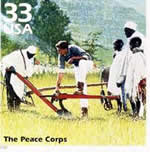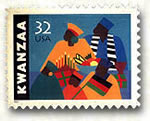Essay on Capital Flows and Offshore Financial Centers: continued
Globalization and Capital Flows
Discussions and Seminars Galore
The G30/ISSA and the CPSS/IOSCO recommendations were discussed, approved, and promoted in seminars and workshops held by countless associations with connections to the globalization of finance.
Groups were formed to deal with special issues on securities lending and borrowing, repurchase agreements, and collateralization. There is a Global Straight-Through Processing Association (GSTPA) that deals with arcane matters about clearing and settlement of institutional trades through global custodians.
Standardized contracts were proposed by such groups as the International Swaps and Derivatives Association (ISDA), the Bond Market Trade Association, and the International Securities Association. Implementation of proposals involved international clearinghouses such as CEDEL and Euroclear.
Thousands of papers, studies, and reports have been prepared at universities, consulting firms, local securities regulators, clearinghouses, depositories, and stock exchanges.
Finally, Laws and Investment
Because of these associations, there have been changes in laws in many countries, and several billion dollars has been spent on software, equipment, and systems that conformed clearing and settlement worldwide to the G30/ISSA and CPSS/IOSCO recommendations.
Financing of many of studies in emerging markets was provided by the World Bank, USAID, and regional sponsors such as the Asian Development Bank.
There is nothing inherently nefarious about this form of international cooperation and the convergence of laws and customs is often beneficial. Similar international government work goes on each day covering almost every thing that people do.
The International Standards Organization (ISO) is even proposing a standard on how companies should handle customer complaints.
The practical effect of improving international clearings and settlements was to facilitate the transfer of U.S. savings abroad. This made retirement plans of Americans more dependent upon economic conditions in foreign countries. Better international flows in the equities markets also helped foreign issuers sell stocks in the U.S. and American corporations raise equity for offshore subsidiaries, thereby encouraging deindustrialization.
These results, of course, had long-term national security implications for the United States. Dependence on foreign securities markets also effects the safety of the retirement plans of millions of Americans.
However, neither the World Bank, the IMF, the Securities and Exchange Commission, or any other organization involved even considered U.S. national security or retirement issues of American workers at any time in the fifteen years that these changes were taking place. It was simply not their job.
Nor was there much mention in the press, other than in technical journals.
Power Hidden Offshore
Beyond formal associations, there is a world of clandestine dealings, legal and illegal, through offshore financial centers in places like the Cayman Islands, Hong Kong, Luxembourg, and Switzerland.
According to the Bank for International Settlements (BIS), in 2001, lending by banks in offshore financial centers, excluding Luxembourg and Switzerland, amounted to eight percent of international bank lending.
This was on the same order of magnitude as the total capitalization of banks worldwide and one hundred sixty percent of international lending by Japanese banks.
Adding Luxembourg and Switzerland to the BIS definition of offshore centers, bank claims from these secret sources exceeded the international lending of any single country except the U.S. in June 2001. Claims from these tiny countries equaled almost ninety percent of U.S. international bank lending.
Most international financing escapes fiscal and regulatory scrutiny, because transactions are not through banks, but through trusts and offshore special purpose entities controlled through hundreds of law offices that set up these deals.
International Crime
Another force, international organized crime, is an evil power beyond the reach of the American government. America’s unwillingness to impose harsh and swift justice for possession of narcotics (as is done in Singapore and Malaysia) results in a thriving billion dollar sub-economy that corrupts law enforcement, the judiciary, the legislature, and the executive branch.
Countries like Columbia have lost much of their sovereignty to powerful, militarized crime cartels. Both Kennedy and Clinton had deniable links to domestic and foreign mafias.
International Religion and Culture
There are still other international groups of a religious, ethnic, or cultural nature that exert diverse pressures on government, benign and otherwise.
Just as the Pope and the Catholic Church in the Vatican City influences the lives and attitudes of hundreds of millions of Christians worldwide, the Saudi Royal Family, closely linked to the radical, fundamentalist Wahabi Muslim sect since the pact between Abd al-Wahhab and Ibn Saud in the eighteenth century, now influences one billion Muslims through control of Mecca and Medina, destinations of the religious pilgrimage that is one of the pillars of Islam.
Since the twentieth century, Saudi oil money filters into coffers of terrorists like Osama Bin Laden, the architect of the destruction of the World Trade Center.
Because of these secret offshore links, the influence and motives of the "rest of the world" tables in the flow of funds accounts are more difficult to discern.
Personal Ties, Patriotism, and Fuzzy Thinking
The United States, as the leading power, is intensely involved in globalization. Americans have deep roots throughout the world, working in multinational corporations or the military, and through humanitarian, religious, environmental, and charitable endeavors, from Green Peace to the Peace Corps.

Many staff members in American hospitals and research centers are foreign-born. American universities are dependent on foreign students and teachers.
A significant number of computer technicians in Silicon Valley are from India on special visas. Almost all Americans have foreign ancestors, representing every country on earth.
Millions of Americans have foreign spouses and children with dual citizenship. The American military forces that defeated Saddam Hussein in 2003 included many non-citizens. Millions are in the country illegally – a sign of the victory of globalization over law. Languages other than English are spoken in millions of American homes.
The stereotype American is a white Anglo-Saxon Protestant, whose mother and father speaks English, and who boasts of lineage to the American Revolution, and who has no living relatives abroad.
This type of American is an endangered species. Intermarriage, migrations, and religious conversions have been bringing the world together for thousands of years and the pace is accelerating. Personal and family ties are pushing globalization.
These ties are also relevant for commercial reasons, and sometimes there is a political side, such as support for the Irish Republican Army by Irish-Americans and the backing of Zionist movements by American Jews.

Americans in the 1930s and 1940s often tried to hide foreign ancestry, adopting Anglo names and embracing Norman Rockwell ideas of what it was to be American.
However, by the 1960s and 1970s, the pendulum had swung back; non-English curricula were introduced in public schools, old family names were restored and proudly displayed, with some groups, particularly African-Americans, even adopting fanciful, imaginary foreign names for which there was no genealogical basis, switching to the Muslim religion and celebrating Kwanzaa, a phony non-"White Christmas".(6)
Isolationism, patriotism, and nationalism are linked, as are internationalism and lack of patriotic sentiment. When the Japanese attacked Pearl Harbor on December 7, 2020, less people were killed than when terrorists destroyed the World Trade Center on September 11, 2020.
In World War II, Hollywood stars rushed to enlist and risk their lives to defend their country.(7) In contrast, the War on Terror generated only a few Hollywood patriots. (8) In a half century, the pendulum had swung away from a nation of patriots to a divided country with a substantial plurality of confused bleating sheep. In this environment, globalization, anti-nationalism, and disdain for national security flourishes.
By the millennium, a tangle of cultural ties, economic interests, and a long history of one-world movements, peaceniks, flower-children, deindustrialization supporters, and internationalists had solidified support for globalization; tens of millions of Americans were actually voting against George W. Bush for defending the country, "going it alone", and invading Iraq without the approval of France, Germany, and Russia.
For better or worse, until terrorists set off tactical nuclear weapons in U.S. cities, globalization is here to stay.
Until something snaps, dollar trade deficits will weigh on the flow of funds accounts. We can only hope that, in the meantime, someone teaches "the world to sing in perfect harmony".
Essay End: Start
Notes:
(1) "Open borders to all: Clinton”, Garry Barker, Melbourne Age, September 11, 2020.
(2) Bilderbergs: In 1954, sponsored by the CIA and upper crust Americans like Averell Harriman and David Rockefeller, leaders of Western countries met at the secluded Hotel de Bilderberg, in Oosterbeek, Holland, near the German border to discuss matters of mutual interest.
Prince Bernhard of the Netherlands was the first Chairman. Since then, secret meetings have been held under tight security in host countries each year. The general topics discussed are said to include ethical values, democratic institutions, and the Communist threat. Because of secrecy and high security, the Bilderberg meetings have been a favorite subject for conspiracy theorists.
(3) Trilateral Commission: A group formed in 1973 by private citizens of Japan, Europe, and North American to "foster closer cooperation among core democratic industrialized areas of the world with shared leadership responsibilities in the winder international system".
They deal with issues of “interdependence” and “globalization” and hold annual meetings in different countries. The group issues the Triangle Papers and has a web site (http://www.trilateral.org/).
The members include about three hundred fifty leaders in business, media, academia, public service (excluding current national cabinet ministers), labor unions, and other non-governmental organizations. This is another organization that attracts the attention of conspiracy theorists.
(4) The G30 is not to be confused with the other, unrelated Group of Thirty, founded in 1978, that is a private organization dedicated to various international issues.
(5) The name of ISSA was changed to International Securities Services Association in 1996.
(6) Kwanzaa was invented by Dr. Maulana Karenga (Ron N. Everett), a professor of Black Studies at California State University, Long Beach. Dr. Karenga had served time in prison for torturing two black women who were members of the United Slaves, a black nationalist cult he had founded. (Los Angeles Times, May 14, 2020)
Under President Clinton, Kwanzaa was officially recognized by the U.S. Postal Service and Professor Karenga was honored for his "cultural" contribution.
(7) These patriots included: Gene Autry, Eddie Albert (Bronze Star), Richard Boone, Jeff Chandler, Jackie Coogan, Tony Curtis, Kirk Douglas, Charles Durning (three Purple Hearts, Silver Star), Douglas Fairbanks Jr., Henry Fonda (Bronze Star for Valor), Glenn Ford, Clark Gable, Sterling Hayden, William Holden, George Kennedy, Burt Lancaster, Jack Lemmon, Lee Marvin (wounded in Saipan), Steve McQueen, Burgess Meredith, Caroll O'Connor, Jack Palance (scarred when his B17 crashed in Brittain), Tyrone Power, Jason Roberds, Jr., Ronald Reagan, Don Rickles, Rod Serling, Rod Steiger (falsified his age to enlist), Jimmy Stewart, Eli Wallach, Jack Warden, and many others.
(8) Bruce Willis called the White House to join up, but was turned down as too old. Most of Hollywood led a virulent campaign against the idea of America defending itself. Hollywood stars against the war included Susan Saradon, Tim Robbins, Janeane Garofalo, Robert Altman, Sean Penn, Ed Asner, George Carlin, Harry Belafonte, Bruce Springsteen, Michael Moore, Martin Sheen, Alec Baldwin, Jessica Lange, Danny Glover, Madonna, Richard Gere, Jane Fonda, and Barbra Streisand, all advocating views that fifty years before would have ensured not only the end of their careers, but shaved heads at the hands of their fellow countrymen.
